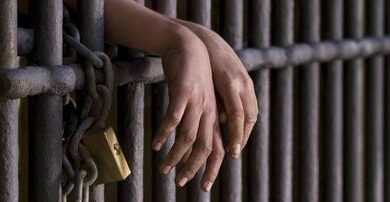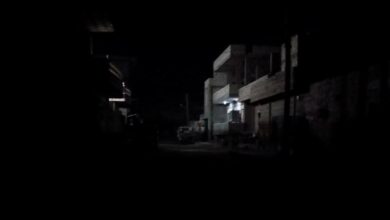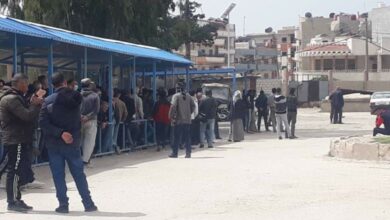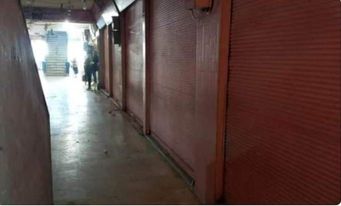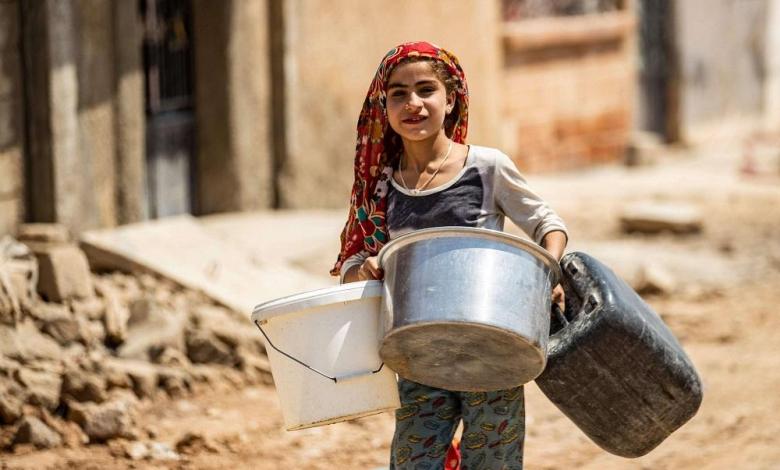
Al-Hasakah is thirsty…the city’s drinking water crisis continues
The suffering of more than a million people in the city of Hasakah and its countryside in securing drinking water has been renewed with the actual advent of summer, in a crisis that emerges every year, without real solutions.
The residents of the city of Hasakah have been suffering for years from water scarcity and its low quality, if available, as a result of the lack of a fixed source that provides drinking water.
The only source currently available to supply the city is the Alouk water station in the eastern countryside of Serêkaniyê, which has been suspended for some time due to the PYD administration cutting off the power line feeding the station, coming from the Suwaydiya station.
According to reports by international organizations, the Alouk water station, which provides clean drinking water to about one million people, has been disrupted at least 25 times since November 2019.
The station has stopped operating permanently since June 23, 2021, for several reasons, including the low access of technicians to perform maintenance and repairs, and the lack of electricity.
This water crisis coincides with a significant rise in temperatures and the lack of electricity, as residents spent Eid al-Adha without water or electricity, and residents work to manage their life affairs by securing water through water tanks, which has become the only alternative for the region.
S.M., the owner of a water tanker, told Yikiti Media: “This tragedy gets worse and exacerbated with the hot summer, when the price of one tank of 5 barrels of water ranges between 12,000 and 15,000 Syrian pounds.”
The source (preferring not to be named) also pointed out that “one tank can barely suffice a family for three to four days at most.”
The owners of the tanks justify the high prices of filling the tanks with the insufficient fuel provided by the PYD administration, whether diesel or gasoline (for the tanks), and the driver was forced to buy it from the black market at double prices, as well as raising the price of diesel provided to the water fountains by the aforementioned administration by 450 % and impose an annual tax on each well.
Families resort to water sources that may be unsafe or limit water consumption, which may contribute to an increase in water-borne diseases.
Dr. A.A. told our website, “Intestinal infections have recently increased in the city of Hasakah, and the reason in most cases is the consumption of non-potable water.”
The doctor also added, “There are cases in which the disease reached severe dehydration, which threatened her life. She was financially poor and could not afford to buy mineral water during the treatment period.”
And she concluded by saying, “The situation is catastrophic, and there must be international intervention in the issue of drinking water in Al-Hasakah and Tal Tamr and their countryside.”
Some citizens have resorted to digging surface wells in front of their homes in order to provide water for washing, rinsing and domestic uses, as it is not suitable for drinking.
Mahmoud, a resident of the Khashman neighborhood, said, “Those who have the financial ability resort to this option as an additional solution that provides non-potable water.”
He explained, “The water from the wells is not suitable for drinking and cooking, which prompts us to buy drinking and cooking water from tankers, or mineral water at a very high price in the days of tanker crisis, as is the case now.”
The city of Al-Hasakah, in Syrian Kurdistan, suffers from a frequent loss of drinking water since the Turkish forces and their loyal factions took control of the Serêkaniyê area and its countryside, without developing alternative solutions by the administration of the Democratic Union Party (PYD), the Syrian regime, or humanitarian organizations.

